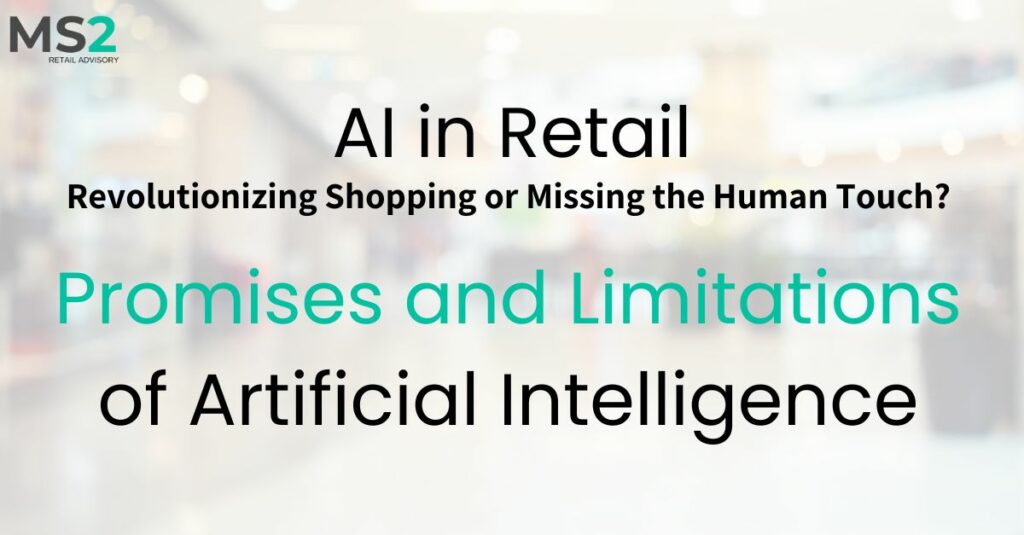Retail is changing fast, thanks to Artificial Intelligence (AI). Even though AI has been around for over 50 years, it’s only now starting to show how much it can change the way we shop. But what does this mean for the future of stores and online shopping? Is AI just a big idea, or is it really going to shake things up?
Recently, we’ve seen some big breakthroughs with AI. Tesla cars can save lives with their autopilot feature, and AI chatbots are changing how companies talk to customers online. These are just the beginning. AI is getting better at helping us in lots of ways, and retail is one area where it’s making a big impact.
Stores like Amazon and Walmart are using AI to make shopping better. Amazon uses AI to suggest things you might like to buy, and Walmart uses it to keep track of what’s on the shelves. This helps them run their stores more smoothly and save money.
But using AI in stores isn’t always easy. Companies have to learn how to use it well and avoid problems. Starbucks uses AI to decide what to advertise to you, and Sephora has an app that lets you try on makeup virtually. These companies show that mixing technology with good planning is the key to success.
Still, there are challenges to using AI in retail. It can be hard to get the data you need, and you need powerful computers to make it work. Plus, not everyone knows how to use AI, and some people worry it might take away jobs.
But what about the future? AI could do even more in stores. Imagine if your fridge could order more food when you’re running low, or if robots helped you find things in the store. And what if your car could drive you to buy things? AI could make all of this possible.
As we look ahead, it’s clear that AI will change retail a lot. But to make the most of it, stores need to solve the problems it brings and keep learning. This article talks about some of the things stores are learning as they use AI, and how it could shape the future of shopping.
Here are five big lessons stores are learning as they use AI:
- Know what you need: Stores like Target and Alibaba are using AI to solve specific problems, like keeping track of inventory. They start small and learn as they go.
- Make what you have better: Companies like Home Depot are using AI to make their stores better, not replace them. They use AI to help you find things online.
- Change the way you work: Nike is using AI to make shoes in new ways. By using AI in their business, they can do things faster and better.
- Let robots help: Amazon uses robots in their warehouses to make things faster. These robots work with people to get things done.
- Work with others: Big companies are working with small startups to find new ideas. This helps everyone make things better.
We have understood what AI is capable of. Now, let’s understand the incapabilities of AI:
- Emotional Connection: Humans excel at building emotional connections with customers. From understanding their needs to offering personalized recommendations, human interaction adds a level of empathy and understanding that AI struggles to replicate.
- Complex Problem-Solving: In situations that require nuanced decision-making or handling unexpected challenges, human intelligence shines. Retail associates can adapt to unique situations, provide creative solutions, and navigate complex interactions with customers.
- Trust and Reliability: Customers often feel more comfortable dealing with a human representative, especially when it comes to sensitive matters or high-value transactions. Human interactions foster trust and confidence, which are essential for building long-term relationships with customers.
- Cultural Sensitivity: Humans have the ability to understand cultural nuances, language subtleties, and social cues that AI may overlook. This is particularly important in diverse retail environments where cultural sensitivity can make or break a customer experience.
- Empathetic Support: During moments of frustration or confusion, human support can offer reassurance and empathy. Whether it’s resolving a complaint or providing guidance, the human touch adds a level of warmth and understanding that enhances customer satisfaction.
In the end, AI could change retail in big ways. It could make shopping easier and more fun. But it’s clear that the human touch remains an irreplaceable asset in the retail industry. By blending the efficiency of AI with the empathy and intuition of human interaction, retailers can create truly exceptional experiences for their customers.

